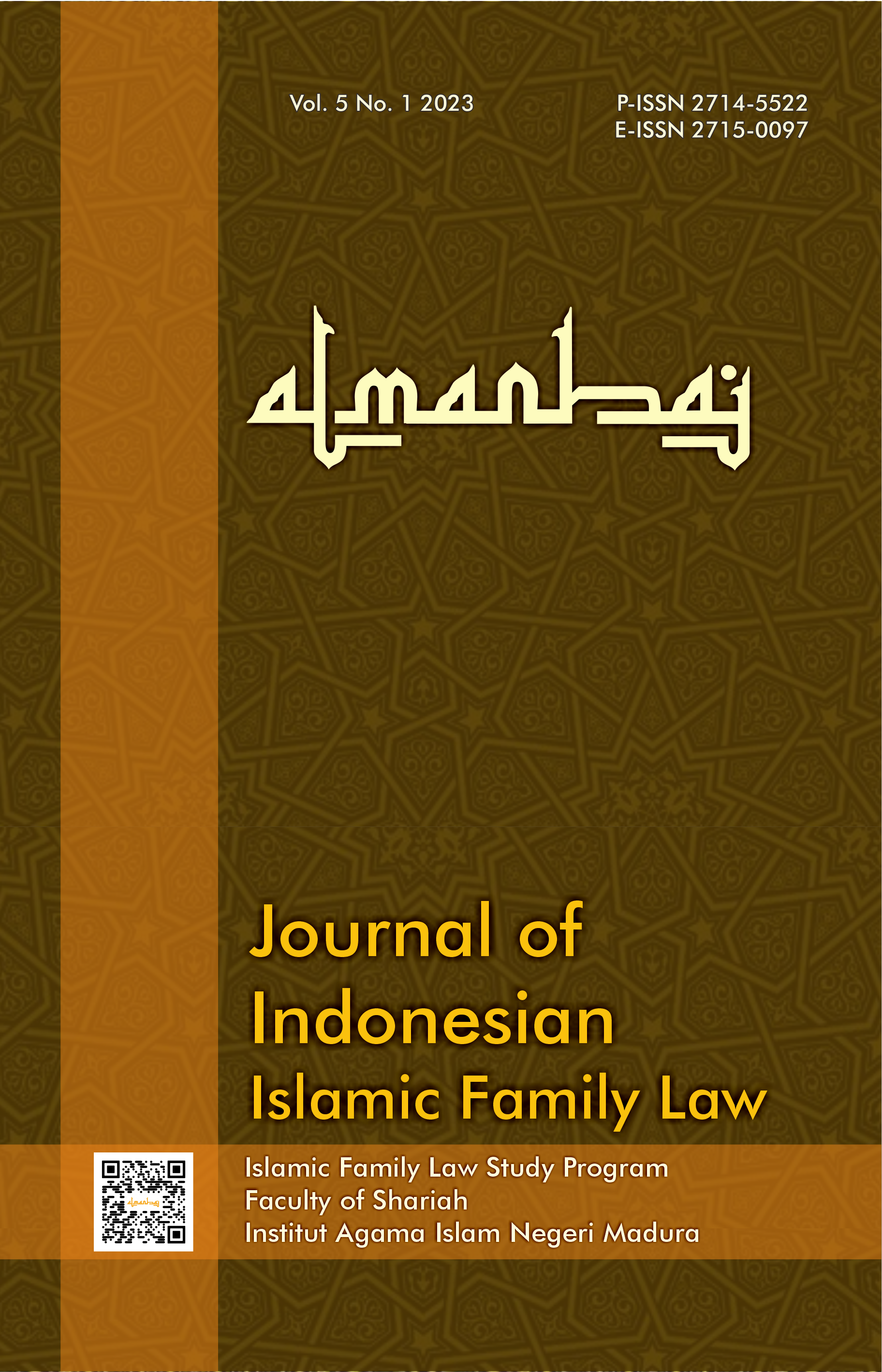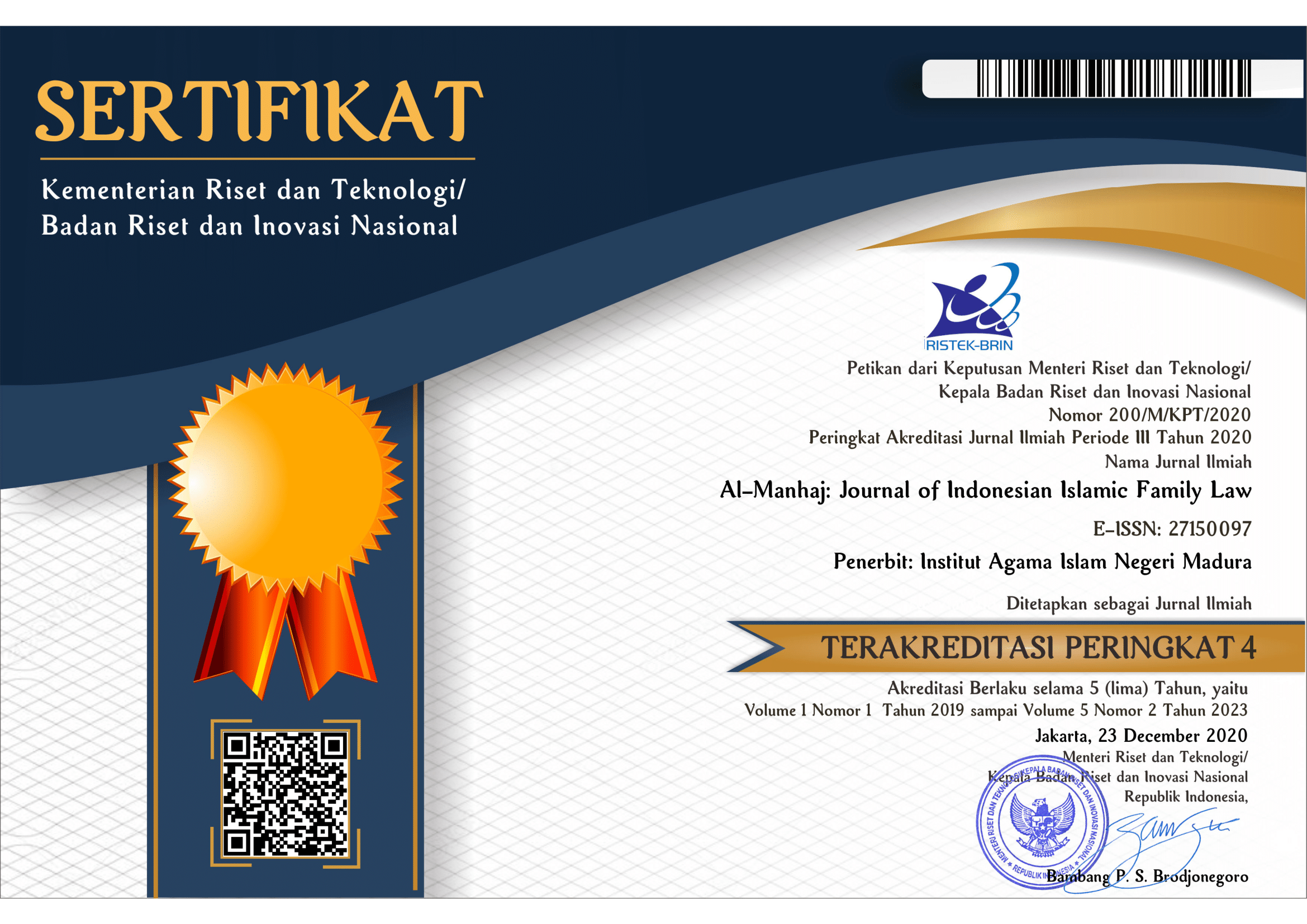Stereotip Ibu Rumah Tangga sebagai Perempuan Pengangguran (Studi Kasus Dinas Kependudukan dan Catatan Sipil Kabupaten Lombok Utara)
 Abstract views: 673
,
Abstract views: 673
,
 PDF downloads: 639
PDF downloads: 639
Abstract
This article aims to find out how the stereotyping of housewives as unemployed women in the Population and Civil Registration Service (Dukcapil) of North Lombok Regency (KLU) and how to gender analysis of this. This research is qualitative research that aims to describe various stereotypical problems towards housewives using a gender analysis approach. This research was conducted at Dukcapil KLU. This article argues that stereotyping of housewives is a form of embodiment of the theory of "State Ibuism" by Julia Suryakusuma, which in fact is also rooted in state administration, particularly in population documents published by Dukcapil. Analyzing it using the theory of State Ibuism, it is known that the KLU community is shackled by the notions of "ibuism" and "housewifization". The understanding of "motherism" is reflected through husbands who think that their wives are better off just staying at home and not working. Meanwhile, the notion of " housewifization" is reflected through stereotyping of the status of a job taking care of the household is the same as being unemployed, because the job of taking care of the household is considered to have no economic value.
Downloads
References
Atun Wardatun, Asyiq Amrullah, Musta’in. “Confirming Domestic Identity, Supporting Public Commitment (The Case of Tuan Guru’s Wife in Lombok West Nusa Tenggara Eastern Indonesia).” Musawa 14, no. 2 (2015): 171.
Atun Wardatun. Literasi Dan Tradisi Kesetaraan (Dialektika Agama, Budaya Dan Gender). Lombok: Pustaka Lombok, 2019.
Badan Pusat Statistik Kabupaten Lombok Utara. Kabupaten Lombok Utara Dalam Angka 2022. Tanjung: BPS KLU, 2022.
Badan Pusat Statistik Republik Indonesia. Booklet Survei Angkatan Kerja Nasional. Jakarta: BPS RI, 2019.
Fahimah, Wahyu Abdul Ja’far & Lim. “The Concept of Munakahat Fiqh: Role Husband and Wife in Forming a Samara Family (Sakinah, Mawaddah, Warohmah) Version of Dhau Al-Misbah Fi Bayani Ahkam an-Nikah by KH. Hasyim Asy’ari.” International Journal Of Educational Research & Social Sciences 3, no. 2 (2022): 832.
Faiqoh. Nyai Agen Perubahan Di Pesantren. Jakarta: Kucica, 2003.
Faqihuddin Abdul Kadir. Bangga Jadi Perempuan: Perbincangan Dari Sisi Kodrat Dalam Islam. Jakarta: Gramedia, 2008.
Fatimah Saguni. “Pemberian Stereotype Gender.” Musawa 6, no. 2 (2014): 200.
Hiroko Takeda. “Between Reproduction and Production: Womenomics and the Japanese Government’s Approach to Women and Gender Policies.” Gender Studies, no. 21 (2018): 57.
Julia Suryakusuma. Ibuisme Negara: Konstruksi Sosial Keperempuanan Orde Baru. Jakarta: Komunitas Bambu, 2011.
Jumarim. Peran Sosial Keagamaan Perempuan Sasak. Lombok: Sanabil, 2019.
Junadi, Heri. “Ibu Rumah Tangga: Stereotip Perempuan Pengangguran.” An-Nisa’ 12, no. 1 (2017): 77.
Khaerani, Siti Nurul. “Kesetaraan Dan Ketidakadilan Gender Dalam Bidang Ekonomi Pada Masyarakat Tradisional Sasak Di Desa Bayan Kecamatan Bayan Kabupaten Lombok Utara.” Qawwam 11, no. 1 (2017): 69.
Kusmana. “Kodrat Perempuan Dalam Al-Qur’an: Sebuah Pembacaan Konstruktivistik.” Ilmu Ushuluddin 6, no. 1 (2019): 57.
Moelong, Lexy J. Metodologi Penelitian Kualitatif. Bandung: PT. Remaja Rosdakarya, 2016.
Muhammad Quraish Shihab. Perempuan: Dari Citra Sampai Seks, Dari Nikah Mut’ah Sampai Nikah Sunnah, Dari Bias Lama Sampai Bias Baru. Jakarta: Lentera Hati, 2006.
Nunuk Endah Srimulyani. “Modernization and Houswifization: Discourse on Gender Construction in Japan and Indonesia.” In Proceeding The 2nd Indonesia-Japan Scientific Forum International Symposium on Japanes Studies, 5, 2019.
Nurul Hilmiati, Bambang Budiwanto, Elske van de Fliert. “Gender, Ethnicity and Engagement: Uptake Strategies for Smallhoolder Cattle Farming Innovation in West Nusa Tenggara, Indonesia.” Rural Extension & Innovation Systems 13, no. 2 (2017): 61.
Shinta Rosalina, Nurhadi, Yuhastina. “Stereotypes Against Female Online Ojek Drivers In Surakarta City.” Humanisma 5, no. 1 (2021): 54.
Subhan, Zaitunah. Kodrat Perempuan: Taqdir Atau Mitos. Yogyakarta: Pustaka Pesantren, 2004.
Copyright (c) 2023 Al-Manhaj: Journal of Indonesian Islamic Family Law

This work is licensed under a Creative Commons Attribution-ShareAlike 4.0 International License.















